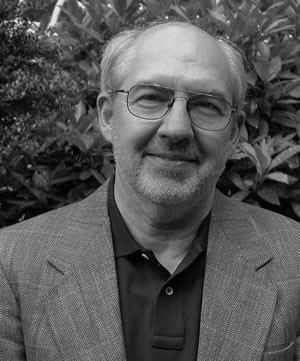James Callen
In one of his first cases after returning home to Youngstown, Ohio, antipoverty lawyer James Callen found himself dealing not only with his client’s official adversary but also with a corrupt political system dominated by the mob. Realizing that was the way things were done in Youngstown, Callen knew he either had to leave, or stay and fight. Twenty-five years later, James Callen is still fighting mob influence and trying to promote a culture of lawfulness in Youngstown.
The rackets flourished in post-war Youngstown, as mob families from Pittsburgh and Cleveland fought for control of the place that The Saturday Evening Post called “Crime Town, U.S.A.” Youngstown, it reported, “exemplifies the truism that rackets cannot survive without two basic conditions – the sanction of police and politicians and an apathetic public.”
By the 1980s, the steel mills, Youngstown’s major employers, had shut down and Jim Traficant, a swaggering, publicity-hungry politician with close ties to organized crime, was elected sheriff. Although he was caught on tape taking bribes from both the Cleveland and Pittsburgh organized crime factions, Traficant won an acquittal in 1982 and was elected to Congress in 1984.
Undaunted, Jim Callen was not about to live under mob rule. In 1982 he joined with a few allies to found The Citizens’ League of Greater Youngstown. Their plan was to use techniques of community organizing to break the mob’s grip on law enforcement, politics and commerce.
Jim and the League held public hearings to expose corruption, published evaluations of candidates for public office, testified before the U.S. Senate Permanent Subcommittee on Investigations and did everything they could to make the cozy relationships between gangsters and elected officials uncomfortable. For example, when Traficant joked on the Phil Donahue Show that he was still acting like he was the sheriff, Jim stood up in the audience and asked if that meant he was still taking money from the mob.
Finally, federal authorities launched a concerted campaign to clean up Youngstown. By 2001, 78 people had been convicted on federal corruption charges, including the county prosecutor, sheriff and engineer, four judges, Traficant’s top local aide and his former legal adviser, more than half a dozen attorneys and several prominent businessmen. One of the FBI agents in charge cites Jim Callen and the Citizens’ League as helping to create the climate that made people “willing to talk to us.”
For 20 years, Jim Callen and Jim Traficant were the main contenders in the battle for Youngstown’s future. Even though an Ohio jury convicted Traficant of corruption and tax evasion this spring, the battle is not over.
 Photo by Dorothea von Haeften
Photo by Dorothea von Haeften